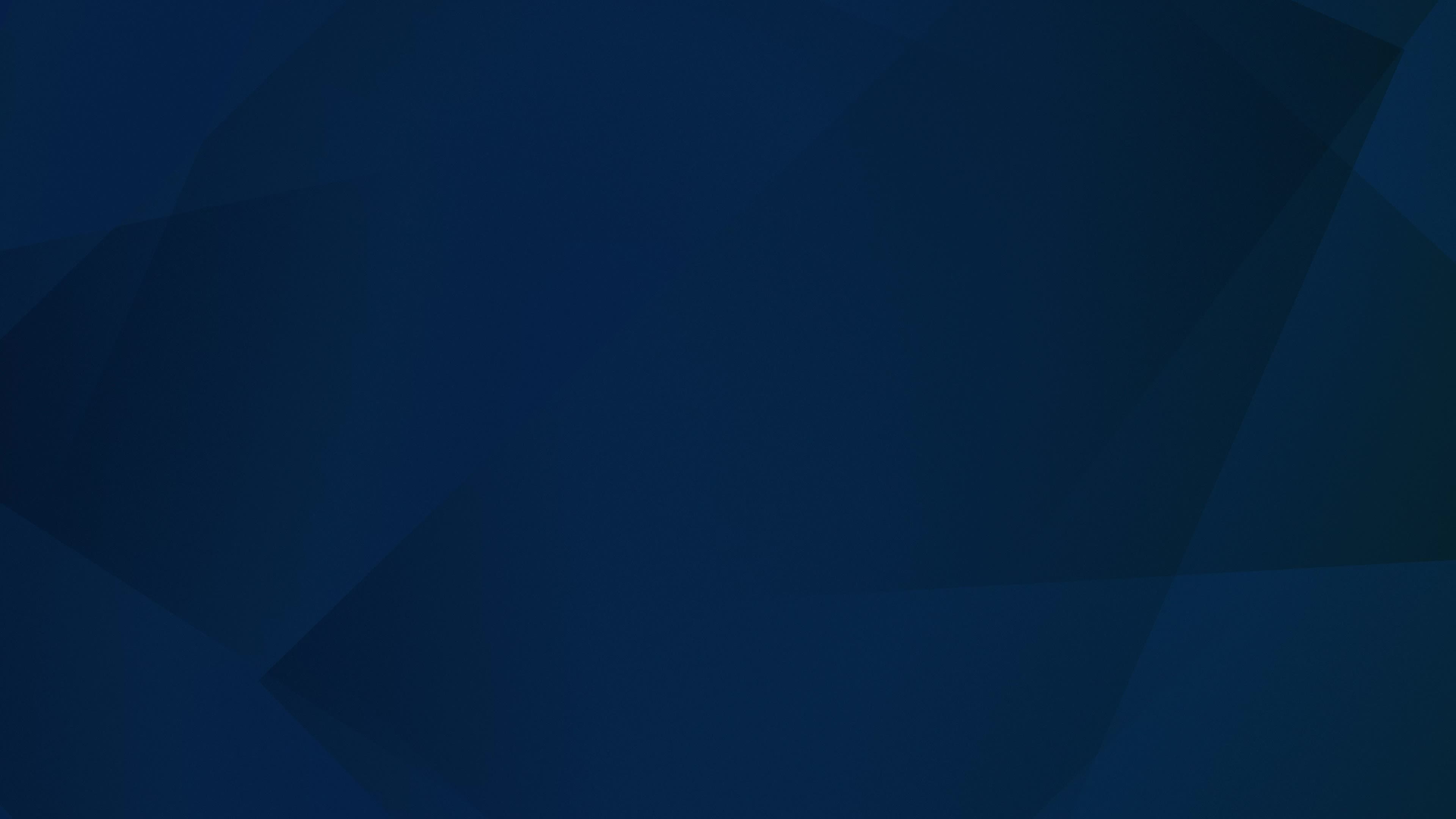SEEING DOUBLE
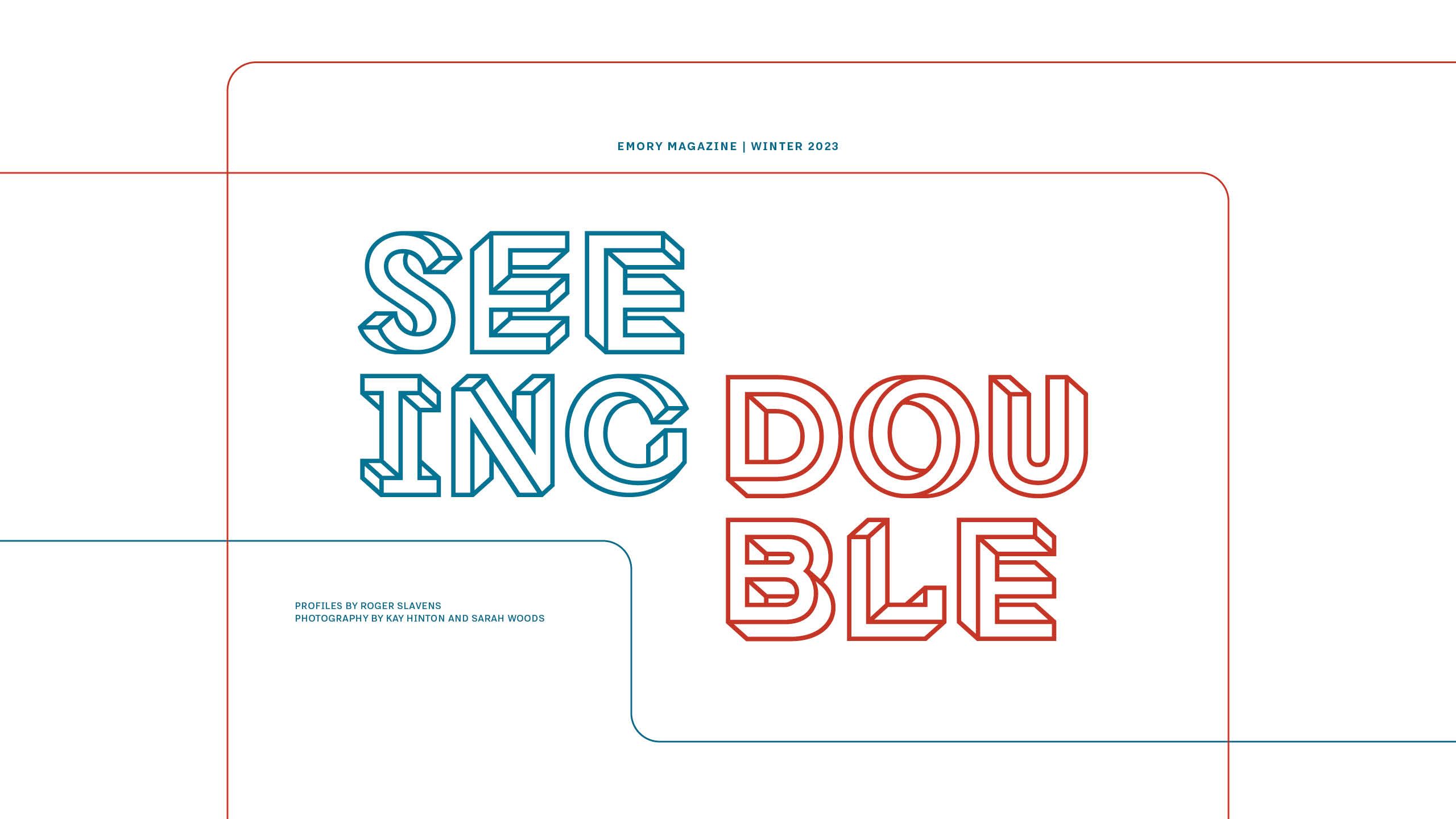

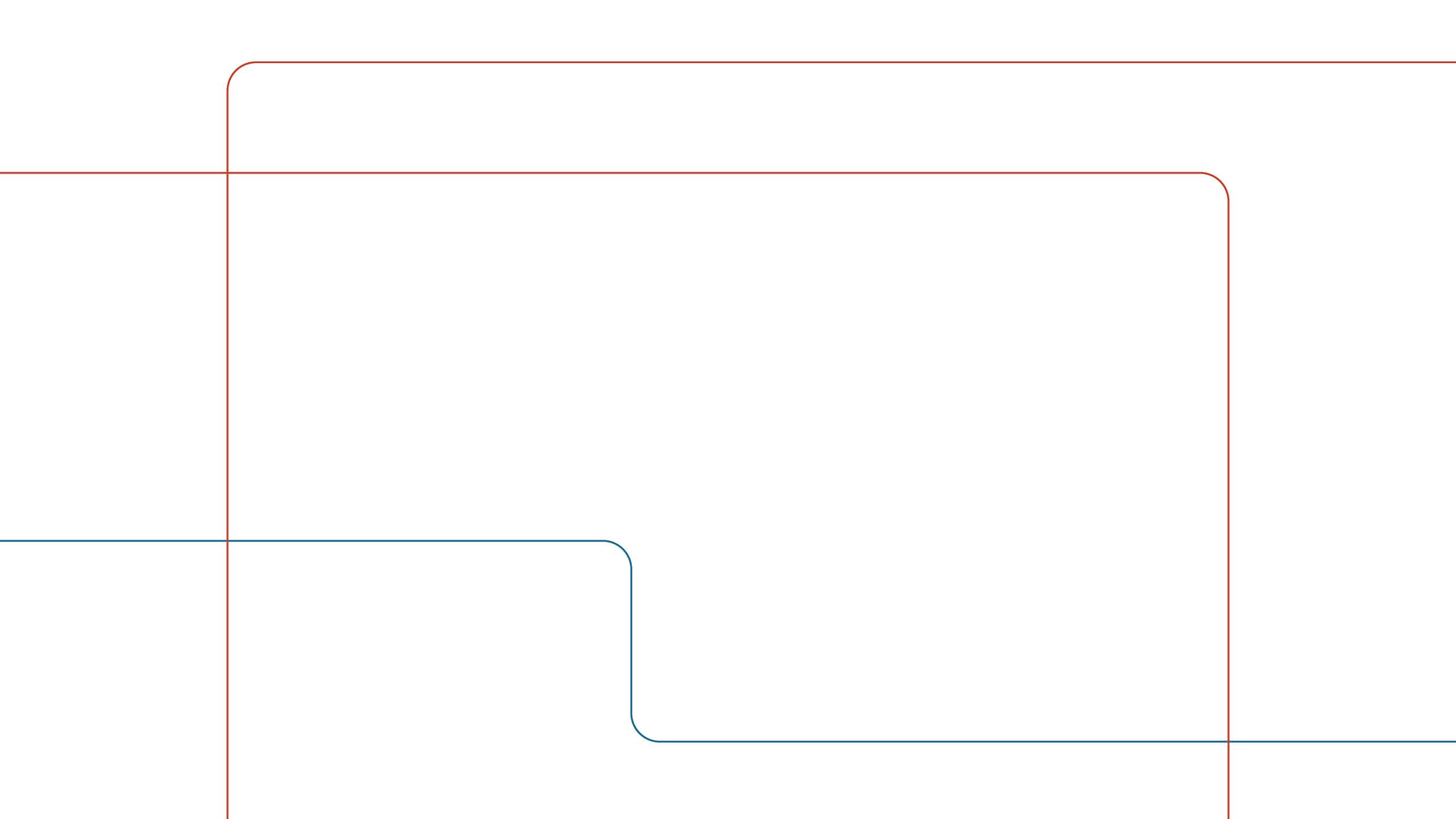
RENOWNED FOR THEIR LOVE OF EXPLORATION, EMORY STUDENTS OFTEN DIVE INTO A DIVERSE AND DIVERGENT RANGE OF SUBJECTS — a spirit ardently supported by the university. It’s not uncommon for them to embrace dual majors that might seem worlds apart. Think biology matched with art history and business partnered with dance. Such combinations often go far beyond conventional intersections and career paths, reflecting journeys driven by passion, purpose and personal growth. In the profiles to come, meet five extraordinary Emory students who each balance a unique blend of interests that have ignited their academic pursuits in unexpected ways.

CAROL XU
Double Major | Music Performance & Economics and Human Health
Carol Xu started at Emory thinking she would become a physician. But she soon realized that studying biology on a pre-med track was not the best fit for her. Xu instead turned to economics and human health — an analytical intersection of study she hoped she could one day leverage to drive positive change in public health policies and systems.
At the same time, however, she had another passion and talent tugging at her heart. She had been playing violin nearly all her life and didn’t want to give up that creative outlet. Paul Bhasin, Emory’s director of orchestral studies, recognized her skill and encouraged her to add a second major in music performance. “One of the things I’m most grateful about my time at Emory has been the freedom to explore,” says Xu, now a senior. “Pursuing a double major has been one of the best decisions I’ve ever made. Even though it’s kept me busy, there is no better feeling in the world than playing on stage with nearly 100 other musicians.”

Pursuing a double major has been one of the best decisions I’ve ever made.
She thrived in the collaborative and supportive community and now she’s the concertmaster — the principal first violinist — for the Emory University Symphony Orchestra. “At Emory, music has been the one place where I have always been able to find my own voice,” Xu says. “It’s the space where I feel the safest to be myself.” Being able to indulge in artistic pursuits has also made learning infinitely easier for her. “When you’re not intimidated by your peers and the opportunities around you, not only are things more fun, but also you just feel comfortable and in harmony with the world,” she says. “That’s how I’ve been able to get out of my shell and become a leader.”
When Xu graduates this spring, she still plans on a career as a health consultant or analyst. However, she wants music to remain an important part of her life moving forward. “I will definitely continue teaching music to kids, and hopefully find a community orchestra to play in,” Xu says. “Ideally, I will wind up in a big city where the arts are a huge emphasis, like Boston, Chicago or New York. That’s my dream.”
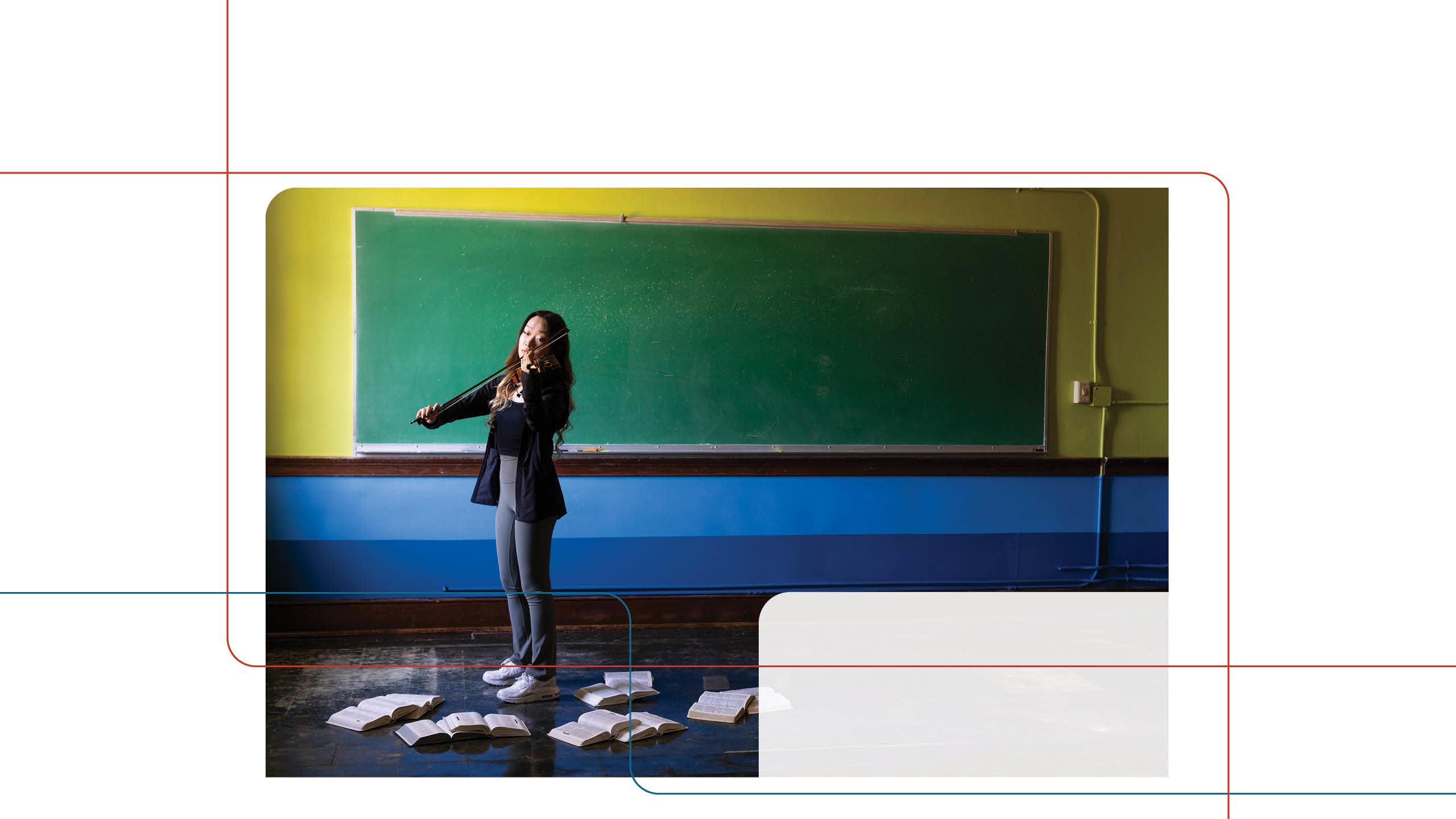

BIBBY AGBABIAKA
Double Major | Dance & Business
Bibby Agbabiaka well knows that dance often isn’t considered as practical a pursuit as, say, business. However, it’s a passion that he cannot deny. “While it’s true that it’s hard to make a stable living in dance, it is not impossible,” Agbabiaka says. He’s been involved in the performing arts, mainly as a theater kid and actor, since he was a child growing up in Nigeria. “I really thought I was going to major in theater at Emory,” he says. “After all, I had only been dancing for a few years before I came here.”
But because the arts at Emory are so interconnected, he wound up taking a few dance classes and immediately knew this is what he wanted to study instead. “The dance program is so amazing and the faculty have been so supportive,” Agbabiaka says. In addition to his classes, he joined the TNT (TrickaNomeTry) hip-hop dance crew where his talents soared — as did his leadership skills.

I started to understand how the skills I was learning in both my dance and business classes weren’t as far apart. Both require great communication and teamwork skills.
Yet in the back of his mind, he felt like he needed something else to solidify his career path. He declared a double major in business, with a focus on marketing, so that he could augment his appeal to dance companies and arts organizations. After he started adding business classes, Agbabiaka felt at first like his mind was being torn in two different directions. “But the more classes I took, I started to understand how the skills I was learning in both my dance and businesses classes weren’t as far apart as I initially believed,” he says. “Both require great communication and teamwork skills. I learned not only how to let my voice be heard, but also to hear other people’s voices.”
Now a senior, he feels like the two areas of study have come together in exciting ways. “I have a better sense of my own identity and I’m not being torn apart anymore — I feel like my whole self,” Agbabiaka says. “The dance courses at Emory have helped me to fully explore and surpass the furthest bounds of my creativity, encouraging me to create and innovate. My business courses, on the other hand, have taught me how to apply structure and planning in my everyday life, as well as helping me to better collaborate with others on big or small projects.” Agbabiaka hopes to find an internship this academic year, and when he graduates this spring, he will follow his dream to become a professional dancer.
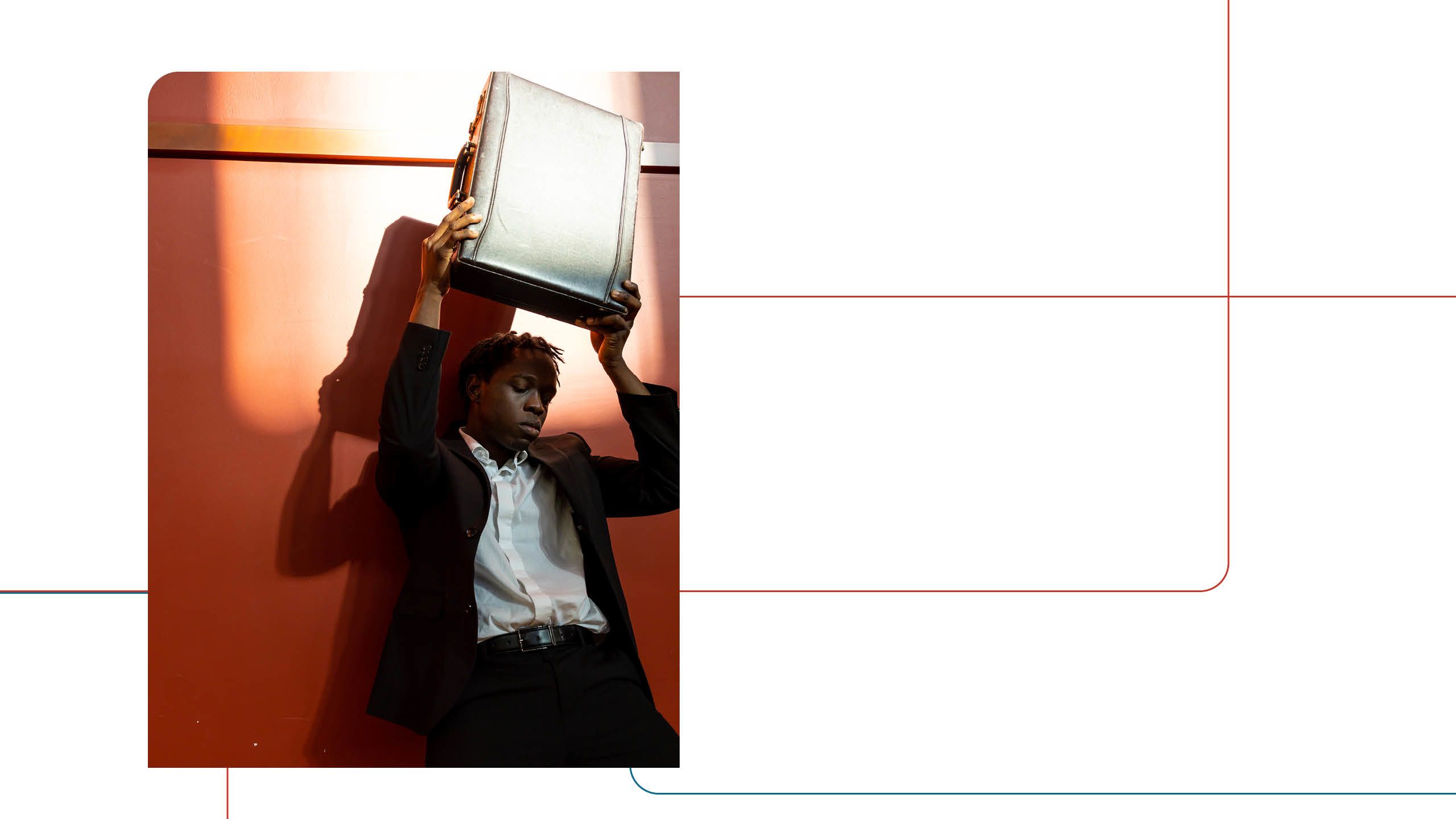

SPENCER FRIEDLAND
Double Major | Film & Philosophy, Politics and Law
For Spencer Friedland, pursuing a double major allows him to indulge in his love for movies while leading him toward a specialized path in law. “My goal has long been to become a lawyer,” says Friedland, who excelled in debate and history in high school. “But I’m also crazy about film. So why not combine both? It took me a while to see there was a way to do it.”
For a long time, Friedland didn’t consider film an economically viable academic or career pursuit. It was simply a fun hobby. He and his friends resurrected his school’s film club after they returned to in-person classes following the worst of the pandemic, allowing them to watch movies together and discuss their favorites. However, his school didn’t have the resources to offer any coursework or programming. Part of the reason he came to Emory, Friedland says, was because he knew the university had a great film department and was located in one of the U.S.’s moviemaking epicenters.

I realized this was the way I could combine my interest in law and film.
“I thought taking classes in film at Emory would be fun way to fill my elective slots, and maybe lead to a minor or something,” he says. “But then I enrolled in Matthew Bernstein’s film history course and it was really eye-opening to me, showing me a side of the film industry I hadn’t really considered.”
A pivotal moment, he recalls, was when a producer talked to the class about the business of film and something inside him clicked. “I realized this was the way I could combine my interest in law and film,” Friedland says. “The business side of the industry would let me have my cake and eat it, too, so to speak, affording me a way to not become another starving artist.” Now he sees a future as an entertainment lawyer, perhaps working on intellectual property rights and contracts. Or maybe as an agent or producer.
“There’s still a lot I have to learn and figure out, but time is on my side,” Friedland says. “Emory was always one of my top choices of universities and I’m so glad to have come here. I don’t know where else I would have had the opportunity to pursue multiple interests at once — not only film and law, but also politics and philosophy — and find an unexpected direction for my life.”
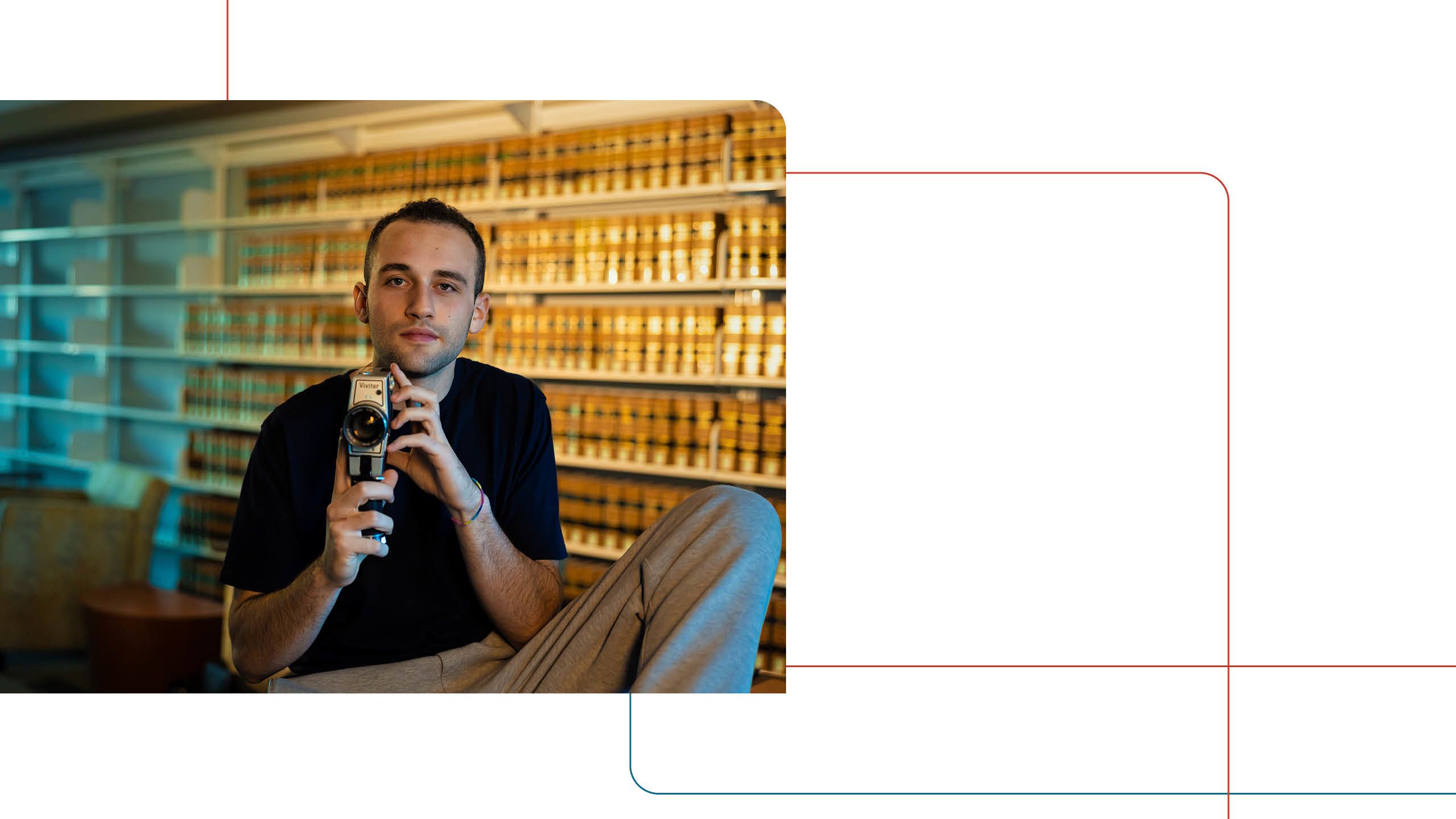

NYAH BRUCE
Double Major | Creative Writing & Business
Nyah Bruce had her mind set on studying business at Emory. But soon after coming to the university, she saw many of her classmates working on double majors. Bruce had a little flexibility in her schedule, so she decided to explore her options and get as much out of her academic experience as possible. She tried Spanish. Then sociology. And then the third time was the charm as she took an introductory fiction writing class from visiting creative writing fellow Cassie Gonzales.
“I had written a little in high school, so I expected to enjoy the class,” Bruce says. “But I loved it so much, I found myself rushing to complete the assignments outside of class.” She declared her double major in creative writing that semester. Since then she has taken two writing classes from professor and author Tiphanie Yanique. “Anything she teaches, I wanted to take it,” Bruce says. She’s also had classes with author Tayari Jones and poet Nick Sturm, two additional members of Emory’s renowned creative writing faculty.

My business knowledge helps me add structure to my writing, and my improving writing skills help me become a better business communicator.
Simultaneously, Bruce has been indulging a completely different side of her brain and personality at Goizueta Business School. “I love my business classes in marketing and organizational management, too, but they are very different, very analytical,” she says. Bruce is finding out that her double majors complement each other very well. “My business knowledge helps me add structure to my writing, and my improving writing skills help me become a better business communicator,” she says. “Also, the students in both fields of study offer very different perspectives and I’ve grown from being around such a diverse group of people. In the writing world, in particular, I’ve learned a lot about empathy and its importance in storytelling. Conversely, in business, the analytical skills I’ve developed help me be a better creative problem solver.”
Both majors will suit her well as she plans to graduate next spring and head to New York City, where she’s already landed a consulting job with McKinsey. “Long-term, I see my career being focused in marketing, where I can really pull from both my creative writing and business background,” Bruce says. “And maybe someday I’ll write that novel or book of short stories.”
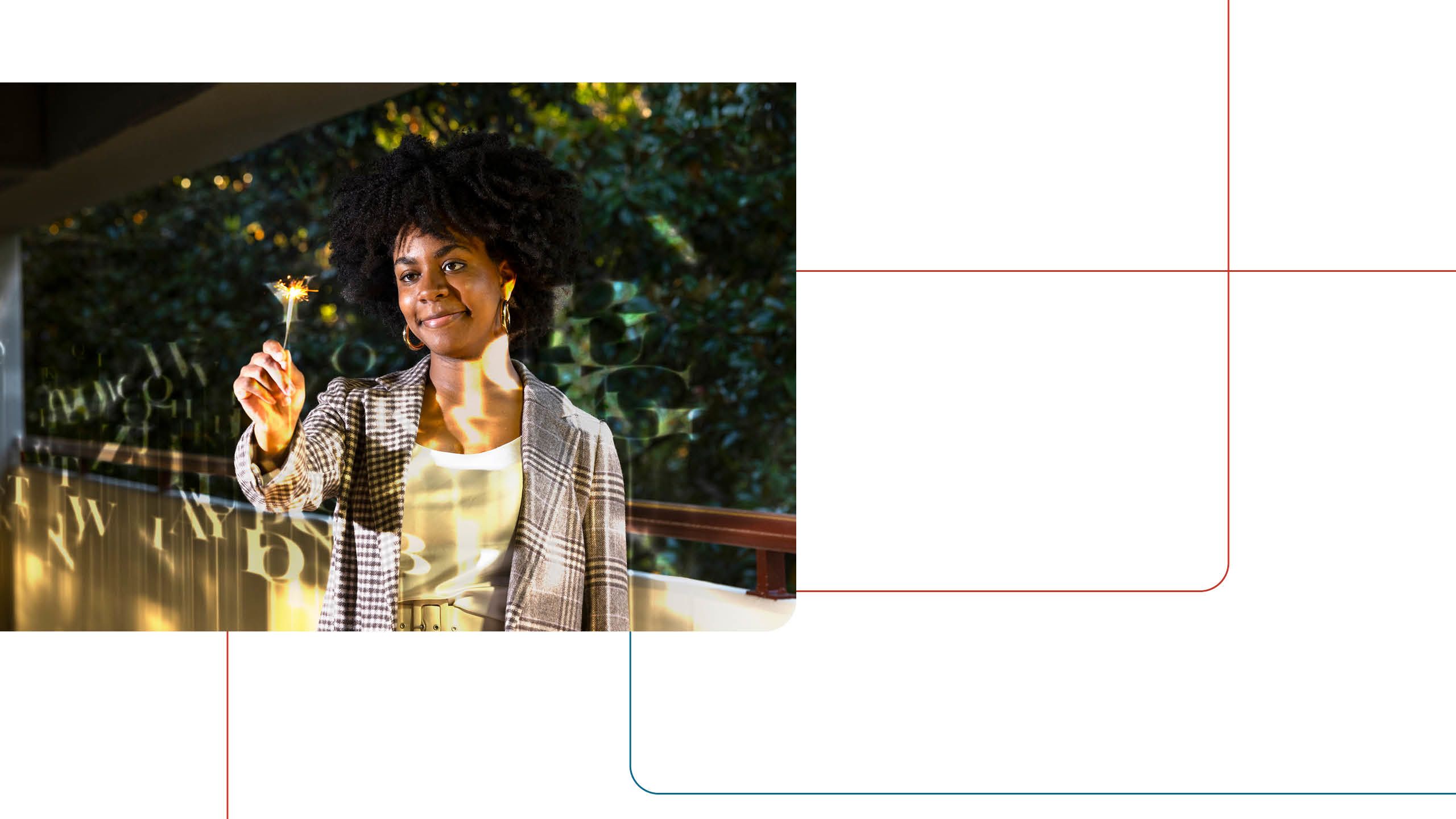

ELLA CASTELLANO
Double Major | Art History & Biology
When Ella Castellano tells people what she’s studying at Emory, they usually react with shock and surprise. But the two seemingly disparate fields of art history and biology fit together almost perfectly for her. “The two aren’t as opposed as people might think,” says Castellano, a junior. “The skills I use in both are surprisingly similar, particularly in observation and inference. Both require you to look closely at the really small details to gain a greater understanding.”
Art and art history are some of Castellano’s earliest loves in her life. “My parents took me to museums a lot and I would just get lost for hours studying the paintings and sculptures,” she says. “And when I got to high school, my AP European History class showed me how all this artwork reflected and influenced the world. I went to art history camp at Sotheby’s in New York City and forever knew this would be a part of my life, one way or another.”

The skills I use in both [art history and biology] are surprisingly similar, particularly in observation and inference.
However, she’s always also been interested in medicine and the opportunity to help people as a healer. She’s pre-med at Emory, and chose an undergraduate major in biology as her first step in a path toward a career as a surgeon. This past summer, Castellano worked in a clinic as a volunteer medical assistant. “It really solidified my belief that the observational, detail-focused skills I’ve developed studying both art history and biology work in tandem and give me an advantage,” she says. The same is true for her work as an Intro to Biology teaching assistant, a role that she’s held two years in a row in addition to her studies.
While her career ultimately lies in medicine, Castellano’s immediate life after college will indulge her love of art history as she plans to take a gap year traveling abroad and visit as many museums as possible. She also says she will always be an artist, no matter what she does professionally. “Art is grounding for me — it heals me on a bad day, it gives me balance,” she says. “And we all need something like that in our lives as human beings.”
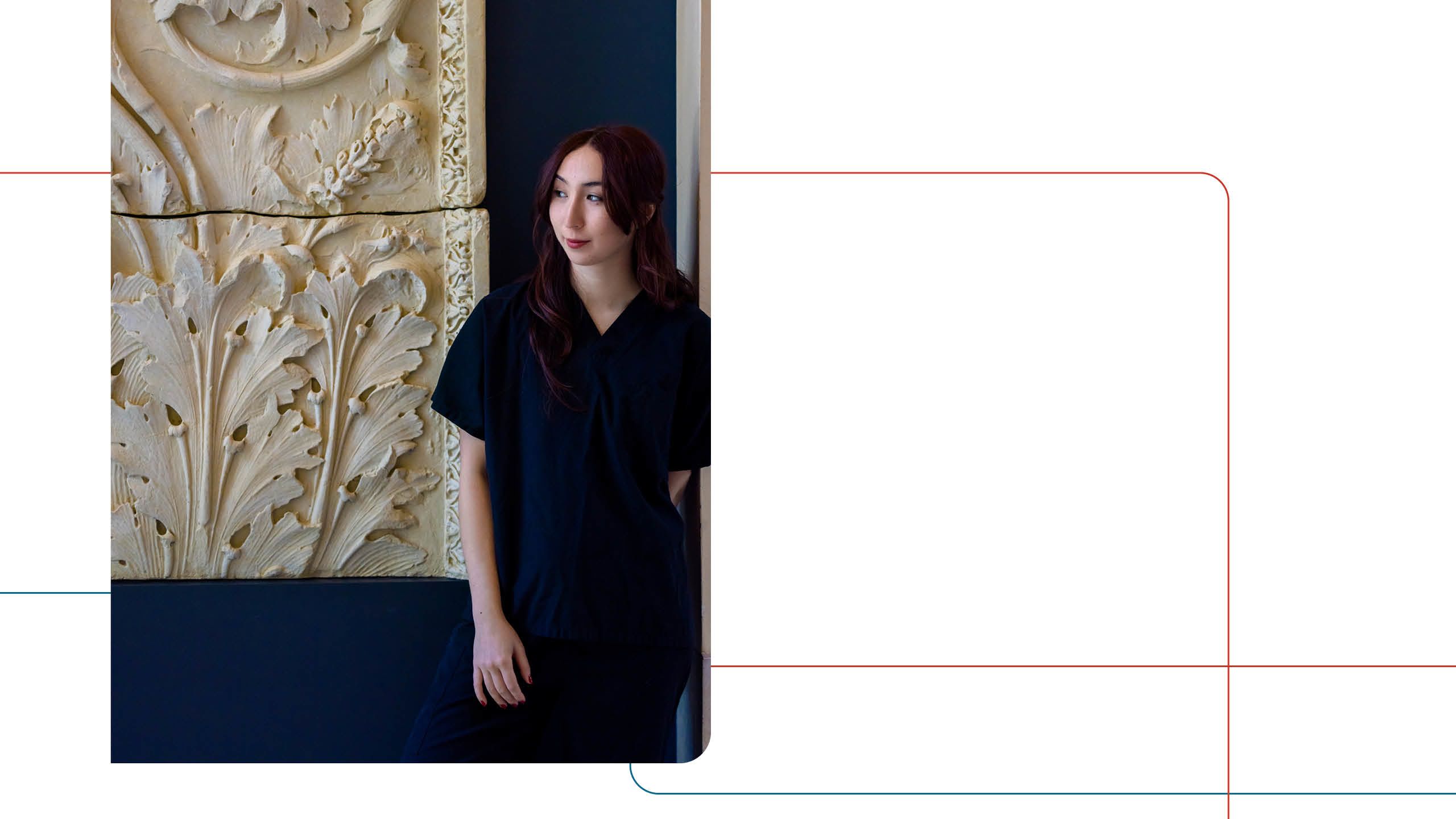
Want to know more?
Please visit Emory Magazine, Emory News Center, and Emory University.
